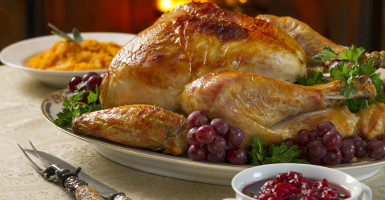Just this month, 3D Systems in Los Angeles, Calif., opened “their new culinary innovation center, the 3DS Culinary Lab … a first-of-its-kind workshop kitchen where avant-garde culinary experts and artists can experiment with the latest in 3D printed food innovations.” That’s one step (for man) closer to cranking out a turkey feast with all the trimmings.
3D printing is a wedding between computing and manufacturing—a process for creating three-dimensional solid objects from a digital file. This is often called an “additive” manufacturing process. “In an additive process an object is created by laying down successive layers of material until the entire object is created,” explains 3DPrinting.com. “Each of these layers can be seen as a thinly sliced horizontal cross-section of the eventual object.”
These technologies are already beginning to transform the manufacturing processes in many industries.
When it comes to cooking, 3D printing can go far beyond Betty Crocker’s cookbook. Creating “new flavors, textures and dishes” will be limited only by the chemicals that the machines can layer.
Companies are already marketing 3D food printing technologies and 3D food products. In China, you can get a 3D moon cake (though why anyone would want a moon cake is a mystery to me).
Creative people are already musing about the ways in which 3D printing will transform the annual Thanksgiving Day meal.
One day, dinner could well be a collaboration among a cook, a computer programmer, and a chemist.
Originally published at PJ Media.































